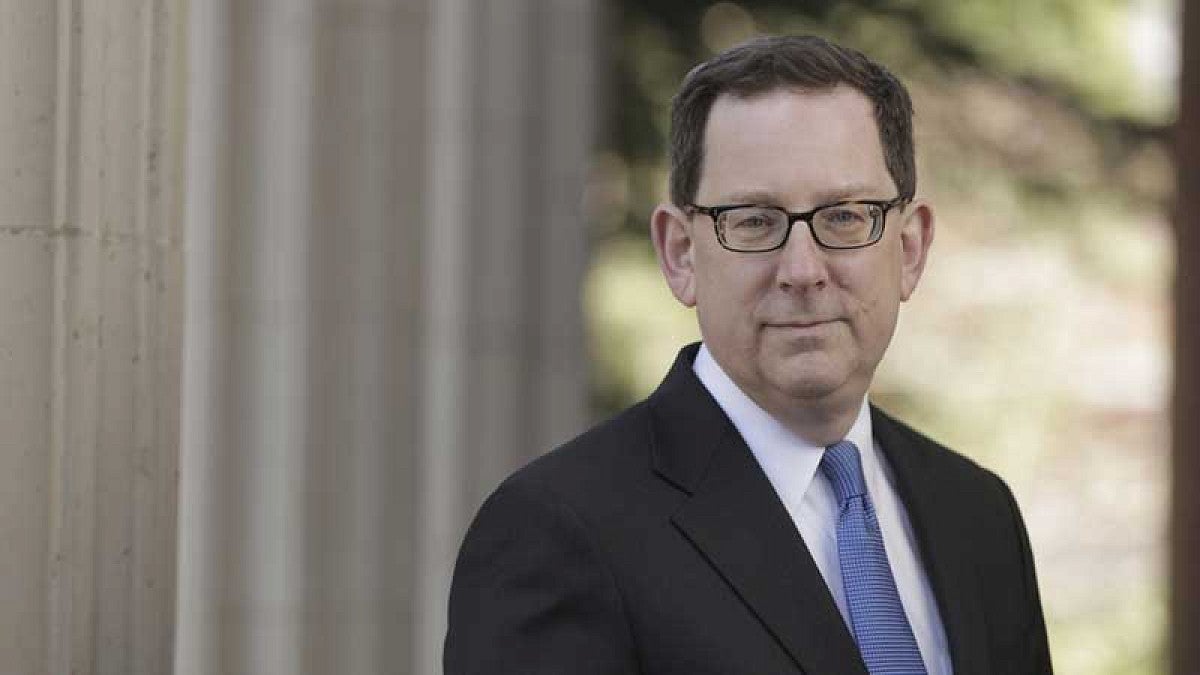President Michael H. Schill has announced a series of operational changes at the UO Police Department that includes reducing the number of armed officers while increasing unarmed community service officers.
The decision followed several months of discussions with the campus community and UOPD leadership. Schill announced the changes in a message to campus sent Nov. 9.
The changes are intended to make UOPD a more inclusive and community-oriented campus law enforcement agency and address concerns across the nation about brutality and racial bias in policing. The plan is also informed by a detailed review of UOPD’s calls for service data in recent years.
Schill said he, UOPD Chief Matt Carmichael and other campus leaders have been in discussions with students, faculty members, staff and community members, seeking to balance the demands of the “disarm” movement with the university’s need to prevent crime and protect campus.
“Ultimately, our campus is best served by a dedicated and fully equipped law enforcement agency that is familiar with the UO campus, understands and embraces our shared values, is engaged in the day-to-day life of the institution, and has established relationships with students, affinity groups, our faculty and staff,” Schill wrote in his message.
“That said, I understand that to some members of our community, particularly our students, faculty, and staff of color, an armed police force generates feelings of oppression and a lack of safety,” he wrote. “It is important to me and to our entire community that all of us feel safe and included at the University of Oregon.”
Schill reiterated there is “no scenario” where the university would disband the UOPD or shift to an unarmed security force, due both to the risk of a major violent event and the regular instances where UOPD officers confront criminals or enter into other potentially dangerous situations on or near campus.
“Since the day I arrived at UOPD, I’ve been deeply committed to instilling police accountability at our agency and building trust with the community we serve,” Carmichael said. “At this critical time, we need to be open to change and new ideas for how to achieve those goals.”
Under the changes, UOPD will shift several armed officer positions into unarmed community service officer positions over the next few months. The agency will do so by eliminating seven sworn officer positions that are currently vacant and adding nine new service officer positions. No current UOPD employees will be laid off or reclassified as a result of this shift.
Unarmed community service officers will now take the lead on security patrols of campus, particularly buildings used by students, like the Erb Memorial Union, Knight Library and residence halls. Service officers will also take the lead in responding to all nonemergency calls that do not require the presence of a police officer.
Armed police officers will continue to be the first responders to all police calls and will be available to respond quickly to other incidents when needed.
Community service officers will no longer wear police-style uniforms. Instead, they will all wear the same, easily recognizable attire. The goal is to make those officers feel more approachable to the campus community.
Finally, the UO will hire an outside consultant to work with the campus community to develop additional proposals to ensure the university’s public safety agency is viewed with confidence and trust. That work will look at a potential new police accountability process, options for an improved response process to individuals dealing with mental health episodes, and additional modifications to the functions performed by armed police officers.
“I’ve been clear all along that I cannot support fully disarming our agency, putting our officers in the field and community at risk,” Carmichael said. “But these are reasonable, data-driven changes that are responsive to needs and expectations of our campus community.”
“The UO is a safe community that is well-served by the UOPD,” Schill wrote. “That said, the reforms I have announced today are rooted in the belief that UOPD can continue to evolve to meet the needs of all of our students, faculty and staff.”


